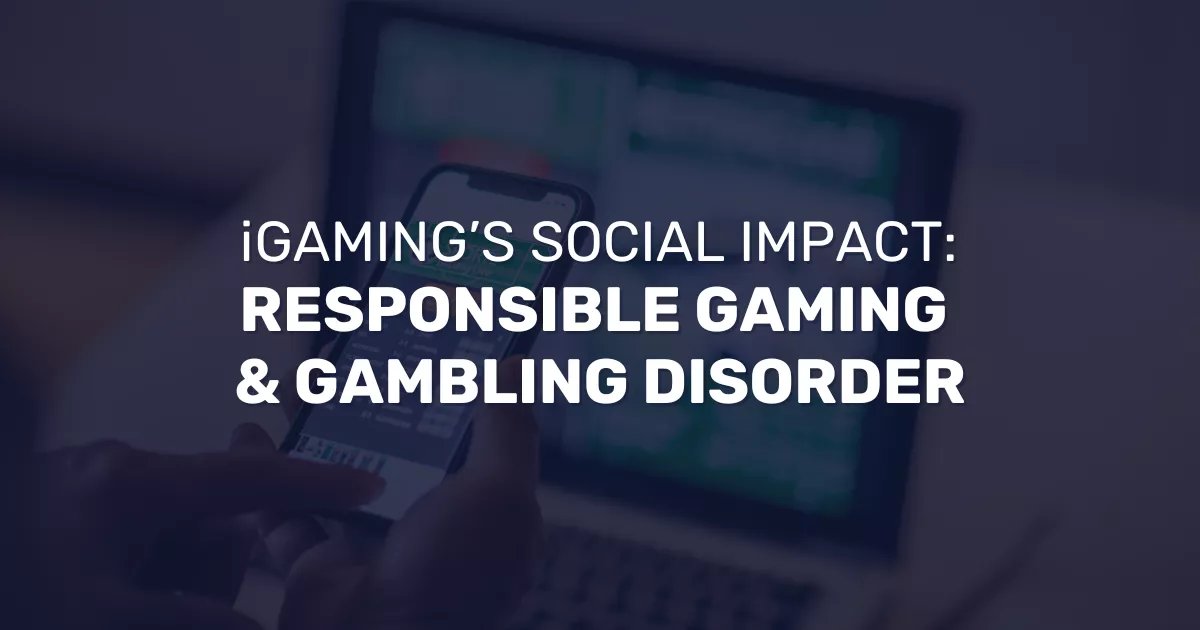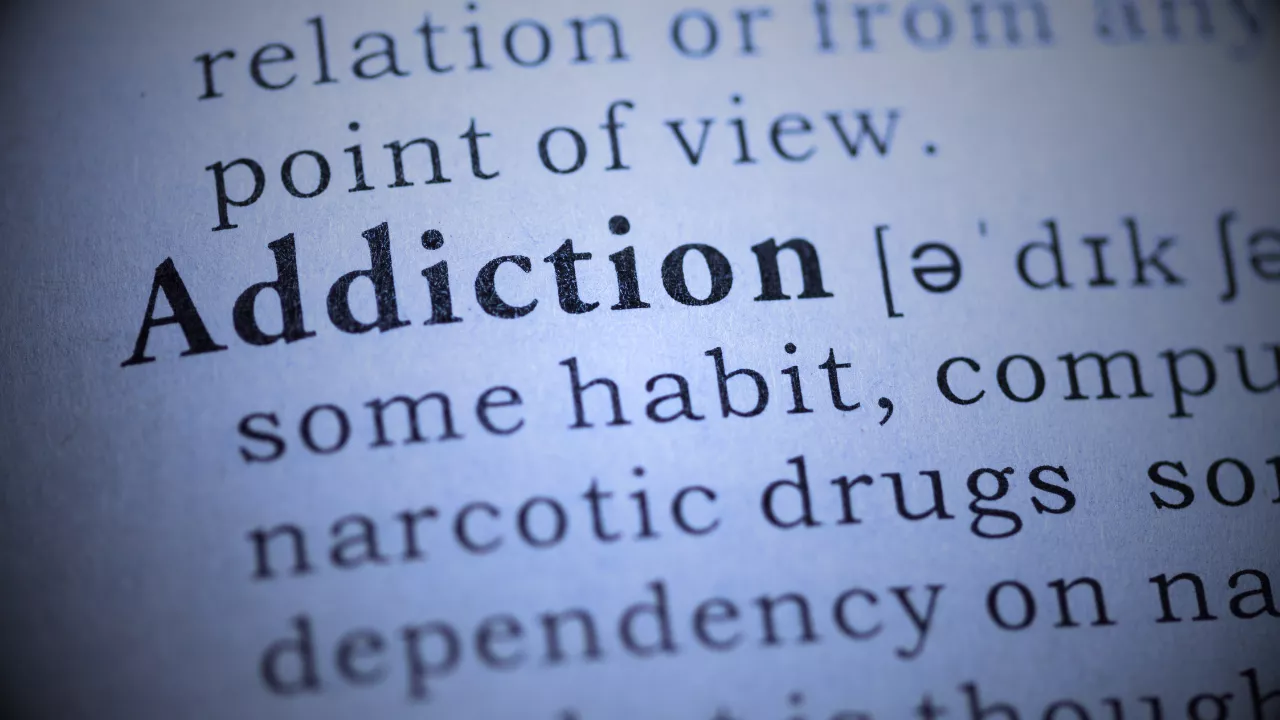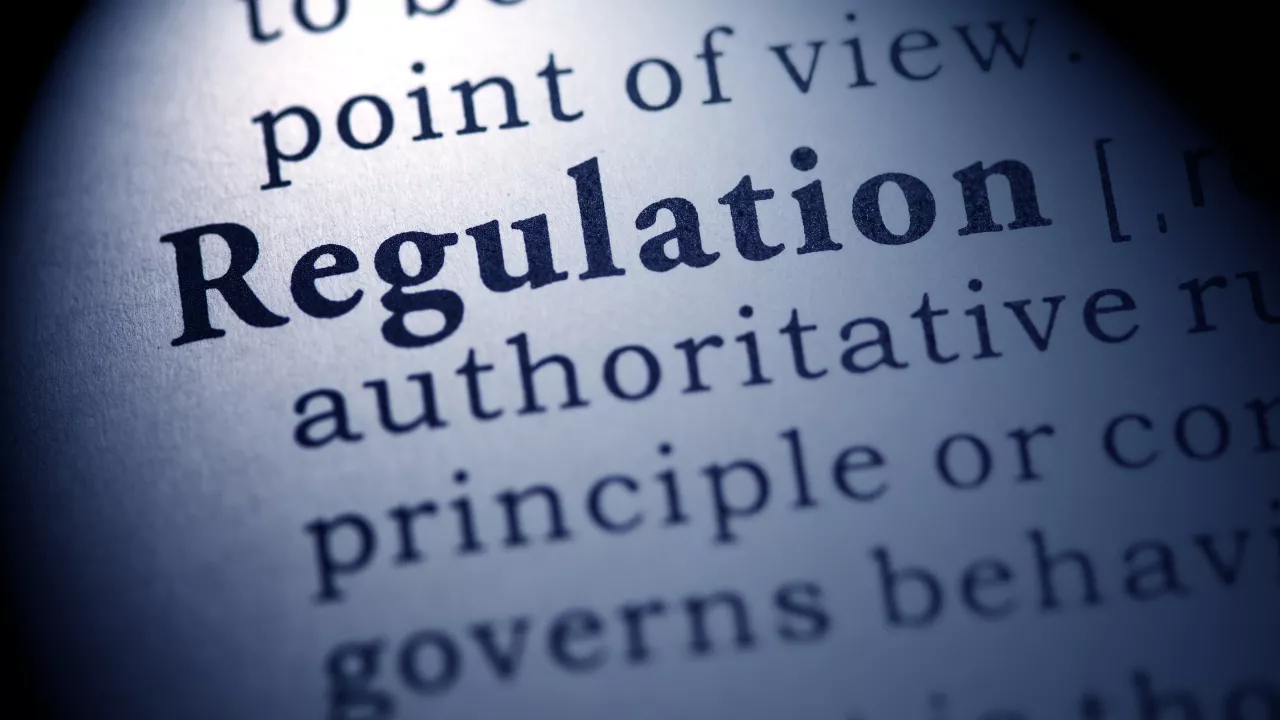Entrevistas e Editoriais
iGaming’s Social Impact: Responsible Gaming and Gambling Disorder

iGaming and betting have significantly grown in popularity with the rise of digital technology, capturing millions of players globally with the allure of entertainment, connection, and potential monetary gains. This meteoric rise, however, brings with it significant societal implications that demand careful exploration and understanding.
This article presents an in-depth examination of the social impact of iGaming and betting, with a particular focus on the themes of responsible gaming and compulsive gambling. We'll dissect the complex relationship between iGaming and society, shed light on stakeholders' responsibilities, and ultimately envision a future in which entertainment and caution can coexist.
iGaming and Society: A Complex Relationship #

While the iGaming and betting industry has many positive aspects, it is important to recognize that its relationship with society is complex, with both positive influences and significant challenges.
The Multifaceted Appeal of iGaming and Betting #
The appeal of iGaming to society is multifaceted, based on a combination of entertainment value, game thrills, potential financial rewards, and social interaction. It provides a form of escapism in which players can immerse themselves in various virtual worlds. iGaming has also evolved into a social interaction platform, allowing players to connect with a global community, which can lead to a sense of belonging and collective identity.
However, this same appeal can lead to problems, such as excessive play, financial difficulties, and addiction, particularly among vulnerable individuals. Understanding and addressing these issues is therefore critical to ensuring a healthy relationship between society and iGaming.
Economic Contributions and Their Ramifications #
There is no denying the important role that the iGaming industry plays in the global economy. It stimulates economic growth through job creation and revenue generation. Governments benefit from tax revenues, which can be invested back into the community to enhance public services and infrastructure.
However, it's important to note that these economic benefits may come with social costs. For instance, some argue that the proliferation of iGaming businesses can lead to increased societal inequality, as those who can least afford to gamble often spend a disproportionate amount of their income on it. Additionally, the social costs associated with problem gambling, such as mental health issues, increased healthcare expenses, and potential for criminal activities, could offset some of the economic benefits.
That's why it's so important to consider economic contributions in the broader context of their societal impact.
The Double-Edged Sword of Technological Innovation #
The expansion of the iGaming market can be attributed in large part to the rapid development of new technologies. Improved gaming experiences made possible by innovations like mobile iGaming, live streaming, and blockchain technology have made iGaming more popular than ever.
However, the same innovations that contribute to the industry's growth can also exacerbate issues related to problem gambling. For example, the easy access and constant availability of mobile gaming can lead to excessive gambling. Similarly, immersive technologies like virtual reality could make it more difficult for players to distinguish between the gaming world and reality, potentially leading to addiction.
This double-edged nature of technological innovation underscores the complexity of iGaming's relationship with society and highlights the need for rigorous industry regulation and promotion of responsible gaming practices.
Unveiling the Dark Side of iGaming: Compulsive Gambling #

Understanding Gambling Disorder: Causes, Triggers, and Consequences #
Compulsive gambling, also known as problem gambling or gambling disorder, is a serious issue linked to the iGaming industry. It's a behavioral addiction characterized by an uncontrollable urge to gamble, despite the negative consequences it may bring about. The causes and triggers of this addiction are multifaceted, often interwoven with psychological, social, and environmental factors.
Psychological triggers: Many problem gamblers are drawn to the thrill of potential wins and the allure of risk-taking. The highs and excitement derived from making a bet and potentially winning can stimulate the brain's reward system, much like drugs or alcohol, leading to addictive behavior.
Environmental factors: The ubiquity of internet connectivity and the rise of mobile devices have made iGaming platforms easily accessible, often promoting frequent and impulsive betting. Anonymity provided by online platforms might also lower the barrier for individuals who might otherwise avoid betting due to the stigma associated with it.
The role of escapism: iGaming can provide a temporary escape from personal problems or negative feelings, helping people to cope with stress, anxiety, or boredom. However, this can lead to dependency over time, as individuals increasingly turn to gambling to escape reality.
The consequences of problem gambling can be severe and far-reaching, impacting the individual's mental and physical health, relationships, financial situation, and overall quality of life.
Profiling the Victims: Identifying Those at Risk #
While anyone can develop a gambling problem, certain groups are more susceptible due to a combination of biological, psychological, and social factors:
Young adults: With their familiarity and comfort with technology, young adults are a prime target group for iGaming companies. However, their propensity for risk-taking, coupled with the ongoing development of decision-making abilities, can make them more vulnerable to addiction.
Individuals with mental health disorders: People suffering from mental health issues, such as depression, anxiety, and ADHD, are at a higher risk of developing gambling problems. They may use gambling as a form of self-medication, to alleviate negative feelings or cope with their condition. Unfortunately, this can often exacerbate their mental health issues, creating a vicious cycle of gambling and emotional distress.
Those with past addiction history: Individuals with a history of substance abuse or other forms of addiction are more likely to develop a gambling disorder. The propensity towards addictive behaviors can easily transfer from one form of addiction to another.
Understanding these risk profiles is crucial in developing effective prevention strategies and offering targeted support to those in need.
The Impact of Gambling Disorder: A Ripple Effect #

Personal Consequences: A Life in Disarray #
Gambling disorder often leads to serious personal consequences. It is a downward spiral that can disrupt every aspect of the individual's life:
Financial distress: Problem gamblers often end up facing severe financial difficulties. They may accumulate significant debt, max out credit cards, or even resort to illegal activities to fund their addiction. This financial strain can lead to bankruptcy, foreclosure, and other financial crises.
Mental health issues: Compulsive gambling is associated with a range of mental health problems. It can lead to increased stress, anxiety, and depression. Problem gamblers may also experience guilt, self-loathing, and even suicidal thoughts.
Work and Education: The preoccupation with gambling can negatively affect an individual's performance at work or in school. They may neglect responsibilities, leading to job loss or failing grades.
Familial Consequences: Strained Relationships and Broken Homes #
The impact of gambling addiction isn't confined to the individual. It can also create significant challenges within their family:
Trust issues: Problem gambling can lead to a breakdown of trust in relationships. Lies or deception to hide the extent of the gambling problem can severely damage familial relationships.
Financial instability: The financial strain caused by problem gambling can lead to tension and conflict within the family. It may result in the inability to meet essential family expenses, such as bills, groceries, or children's education.
Emotional stress: Family members may experience stress, anxiety, and depression due to the behavior of the problem gambler. Children, in particular, may suffer from emotional neglect or abuse.
Societal Consequences: A Burden on Communities and Systems #
At a broader level, gambling disorder can also have serious societal implications:
Crime rate: To fund their gambling or pay off debts, some problem gamblers may resort to illegal activities, such as theft, fraud, or embezzlement, leading to an increased crime rate.
Productivity loss: Reduced work performance among problem gamblers can lead to productivity loss. Additionally, time and resources may be expended on dealing with gambling-related crimes and legal issues.
Strain on social services: Problem gambling can put a significant burden on social services. Increased demand for mental health services, financial aid, and housing assistance can strain resources and impact the community.
Understanding the multi-level impact of gambling addiction emphasizes the urgent need for preventative measures, timely interventions, and robust support systems to mitigate this social issue.
Responsible Gaming: A Proactive Approach to Mitigating Risks #

Responsible Gaming: Defining and Implementing a Critical Concept #
Responsible gaming is a comprehensive approach that aims to prevent and reduce the potential harm associated with gambling. It's a commitment from all stakeholders in the industry, including iGaming operators, players, and regulatory authorities, to ensure that gambling activities are conducted in a manner that promotes enjoyment, fairness, and safety. Here's what it entails:
Awareness and Education: Promoting awareness about the risks associated with gambling is key to preventing problem gambling. This includes educating players about how games work, the chances of winning, and the potential risks and signs of addiction.
Player Protection Measures: These include setting betting limits, providing options for self-exclusion, reality checks about time or money spent, and age verification systems to prevent underage gambling.
Access to Help and Support: Making resources readily available to players who may be struggling with gambling problems is a key aspect of responsible gaming. This could include self-assessment tools, helplines, and information on counseling and treatment services.
iGaming Platform Providers: Architects of Safe Gaming Environments #
iGaming platform providers are at the forefront of designing and shaping the gaming environment. Companies like NSoft are continuously innovating to create engaging, safe, and responsible platforms. Here's how we contribute:
Developing responsible gaming tools: NSoft and similar companies integrate a suite of tools into their platforms to foster responsible gaming. Key features include:
Self-exclusion: This function allows players to voluntarily exclude themselves from gaming for a specified period.
Play limits: Players can set their own limits on the amount of time and money they spend on games.
Game speed controls: By allowing players to control the pace of games, the risk of impulsive gambling can be reduced.
Age verification systems: This measure prevents underage players from accessing the gaming platforms.
Reality check notifications: Alerts are given to players about the time spent or money lost during gaming, encouraging them to take breaks.
Auto-play controls: Players can set restrictions on auto-play, helping to limit potential excessive gaming.
Incorporating risk detection algorithms: Providers can use advanced AI and machine learning algorithms to detect patterns indicative of potential problem gambling. These early warning systems can lead to timely interventions, preventing a player from falling into harmful habits.
Emphasis on research and development: iGaming platform providers continuously innovate to meet the needs of the evolving market. They research and develop new ways to enhance player protection features, create more engaging user interfaces and experiences, and devise novel tools to promote responsible gaming.
iGaming Operators: Frontline Defenders of Responsible Gaming #
As primary stakeholders, iGaming operators play a pivotal role in fostering responsible gaming:
Proactive monitoring and intervention: By using analytics provided by the platform, operators can monitor player behavior, detect early signs of gambling problems, and initiate appropriate interventions.
Promoting awareness and education: Operators can run campaigns to educate players about responsible gaming, including the risks and signs of gambling disorder, and how to gamble responsibly.
Facilitating access to support: Operators can ensure that players who show signs of problematic gambling are provided with necessary support, such as counseling and treatment referrals.
Staff training: Companies can train their customer service staff to recognize signs of problem gambling and handle such situations empathetically and effectively.
Promotion of healthy gaming practices: iGaming companies can also promote a culture of healthy gaming, emphasizing that iGaming is a form of entertainment, not a way to make money or escape problems.
Regulatory Authorities: Shaping a Safer Gaming Environment #

Regulatory authorities are key stakeholders in the quest to foster responsible gaming practices in the iGaming industry. They provide crucial oversight, ensuring that the industry remains transparent, fair, and accountable to its players. Their role can be expanded as follows:
Formulating robust regulations: Regulatory authorities design and enforce strict regulations and standards for iGaming, ensuring operators abide by player protection measures. These measures may include mandatory use of responsible gaming tools, requirements for customer identity verification, rules against predatory advertising practices, and standards for fair game algorithms.
Auditing and enforcement: Regulatory bodies frequently conduct audits of gaming operators to verify compliance with the established regulations. Any non-compliance can result in penalties, which may range from fines to revocation of operating licenses, thereby providing a powerful incentive for operators to prioritize responsible gaming.
Promoting transparency: To maintain trust in the industry, regulatory authorities promote transparency by requiring operators to provide clear and accurate information about their games, including the chances of winning, the cost of participation, and the risks of excessive play.
Establishing channels for dispute resolution: Regulatory authorities also establish systems for handling player complaints and disputes with iGaming operators. This serves to ensure players' rights are protected and that any grievances are promptly and fairly addressed.
Education and awareness: Regulatory bodies often play an important role in raising awareness about the risks of problem gambling and the importance of responsible gaming. They may conduct campaigns, sponsor research, and collaborate with problem gambling support organizations to educate the public and support those struggling with gambling disorder.
Influence on legislation: By advising governments on the evolving trends and issues in the iGaming industry, regulatory authorities can help shape the legislative landscape in ways that protect consumers and promote responsible gaming.
Through their broad-ranging efforts, regulatory authorities can significantly shape the iGaming environment, making it safer and more responsible. They stand as crucial gatekeepers in the industry, ensuring that the exhilarating world of iGaming also remains a space of fairness, transparency, and player protection.
Envisioning a Future of Responsible Gaming: What More Can Be Done? #

The future of responsible iGaming calls for concerted efforts from all stakeholders. A synergy of technology, regulation, education, and awareness is essential to foster a gaming environment that celebrates enjoyment without compromising safety. The steps to achieve this vision are manifold:
Strengthening Regulatory Frameworks #
Adaptive legislation: Governments and regulators must keep abreast of evolving trends, technological advancements, and emerging challenges in the iGaming industry to formulate flexible yet robust regulations.
Global coordination: Since iGaming is a global phenomenon, international collaboration on regulatory standards may help in creating a more uniform responsible gaming environment.
Enhancing Self-Regulation by iGaming Operators #
AI-driven monitoring tools: Investing in AI-driven tools like NSoft Vision is crucial. It detects early signs of problematic gambling, supports timely intervention, and its age verification and blacklist notification features help prevent compulsive gambling and regulatory penalties.
Transparent and user-friendly platforms: Platforms must be designed with features that allow players to track their gaming habits, set self-limits, and access support when needed.
Best practice sharing: iGaming operators and platform providers should collaborate and share best practices to collectively improve the industry's approach to responsible gaming.
Public Awareness and Education #
Comprehensive campaigns: Governments, regulators, and the industry should partner to run comprehensive public awareness campaigns about the risks and signs of problem gambling.
Educational programs: Introducing educational programs in schools and communities, offering workshops, and creating informative online content can help in building a culture that recognizes and promotes responsible gaming.
Support systems and collaboration: Working with mental health organizations and addiction support centers can ensure that individuals at risk have access to the help they need.
Emphasizing Technological Innovations #
Research and development: Continued investment in R&D can lead to the creation of more advanced tools, like personalized player dashboards, predictive analytics for identifying risky behaviors, and more immersive responsible gaming educational materials.
Fostering a Player-Centric Approach #
Empowering players: Providing players with the knowledge, tools, and resources to take control of their gaming behavior fosters a more responsible and self-aware gaming community.
Feedback mechanisms: Encouraging player feedback and acting on it can help the industry to continually refine and improve responsible gaming practices.
By embracing these strategies and working together, the various stakeholders in the iGaming industry can build a future where gaming is not just a source of entertainment, but also a realm of empowerment, transparency, and responsibility. It's a future where the joy of gaming flourishes alongside a robust culture of mindfulness and care.
Wrapping Up #
iGaming, while offering exciting entertainment and economic benefits, also brings to light serious societal challenges, most prominently gambling disorder. To mitigate these adverse effects and safeguard individuals, the industry, with the support of regulatory bodies and the wider community, must promote and facilitate responsible gaming.
In conclusion, the impact of iGaming on society is a complex issue, requiring continuous monitoring, research, and intervention. As we forge ahead, let's strive to ensure that the future of this vibrant industry is defined not only by technological innovation but also by a strong commitment to social responsibility and individual wellbeing.
Tags:
Artigos Relacionados
Notícias
29.04.2025.
NSoft and InnovaPlay Strategic Partnership
The strategic collaboration integrates NSoft’s innovative sportsbook technology seamlessly into InnovaPlay’s comprehensive white-label and full web solution, empowering sportsbook operators to reach new heights of performance and player engagement.
Saiba mais
Notícias / Entrevistas e Editoriais
16.04.2025.
Beyond the Bet: How Gamification is Reshaping Online Gambling
By making the gamification elements fun, relevant, and optional, you ensure that they enhance the betting experience rather than overshadow it.
By Marko Galić, Game Mathematician & Project Manager at NSoft
Saiba mais
Não encontrou o que estava procurando?
Nossa equipe terá o prazer de guiá-lo por nossos produtos e serviços.
Contate-nos